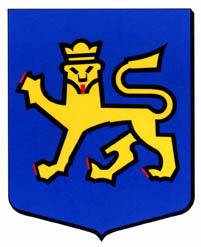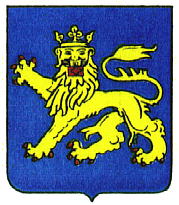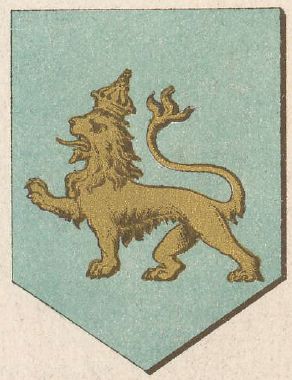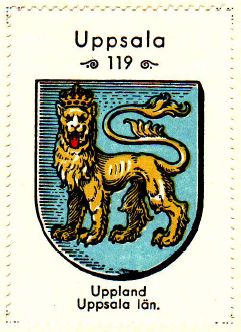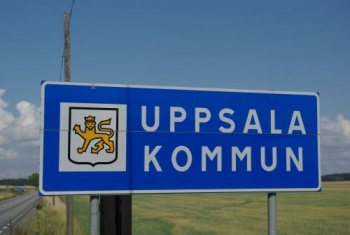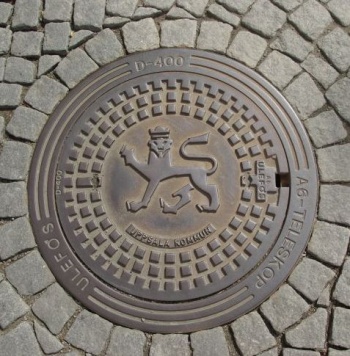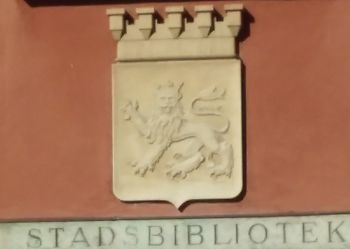Uppsala
Template:Sweden UPPSALA
Province (Landskap): Uppland
County (Län): Uppsala län
Additions : 1947 Bondkyrka, Gamla Uppsala; 1967 Södra Hagunda (1952 Balingsta, Dalby, Hagby, Ramsta, Uppsala-Näs, Västeråker), Vaksala (1952 Danmark, Funbo); 1971 Almunge, Björklinge (1952 Viksta), Bälinge (1952 Börje, Jumkil, Skuttunge, Åkerby), Knutby (partly, 1952 Bladåker, Edsbro, Faringe), Norra Hagunda (1952 Järlåsa, Läby, Skogs-Tibble, Vänge, Åland), Vattholma (1952 Lena, Tensta, Ärentuna); 1974 Oland (partly, 1952 Alunda, Ekeby, Skäfthammar, Stavby, Tuna; 1967 Rasbo (1952 Rasbokil))
Official blason
- (1943) I blått fält ett gående utåtseende, krönt lejon (leopard) av guld med röd beväring, därest dylik skall användas
- (1986) I blått fält ett gående utåtseende, krönt lejon i gult med svart kontur och med röd beväring, därest dylik skall användas.
Origin/meaning
The arms were officially granted in 1943 (below) and in a new design in 1986 (above).
The origin and meaning of the arms is not really known. The oldest recorded use is only from 1731. The city seals before the 18th century all show a church building, the local cathedral. As the cathedral burnt down in 1702 it was probably not possible to have a proper representation of the cathedral on the new seal of the city. The lion has been speculated is the Swedish lion and symbolises that the Swedish Kings have been crowned in Uppsala for many centuries. The colours were only determine din 1943.
| The arms as shown by Liljeblad, 1878 |
The arms in the Kaffe Hag album +/- 1935 |
| The arms on a roadsign on the municipal border |
The arms on a manhole cover (2016) |
| The arms on the library |
Contact and Support
Partners:
Your logo here ?
Contact us
© since 1995, Heraldry of the World, Ralf Hartemink
Index of the site
Literature : Nevéus and de Waern, 1992
